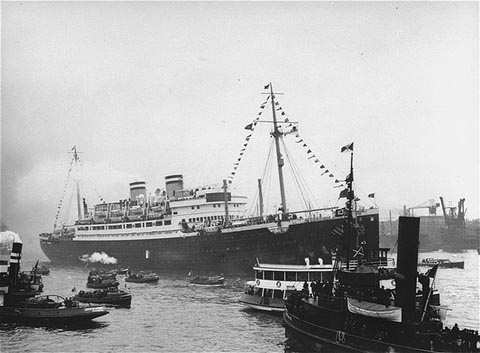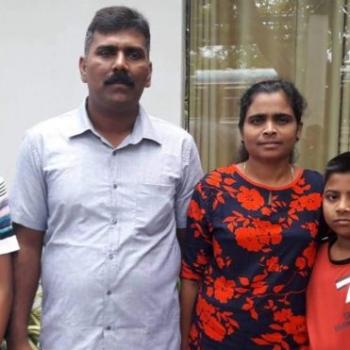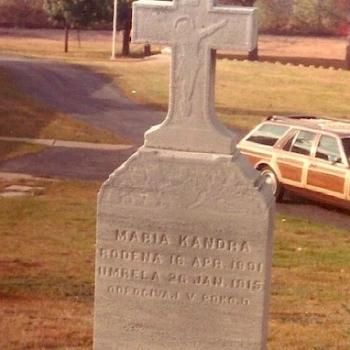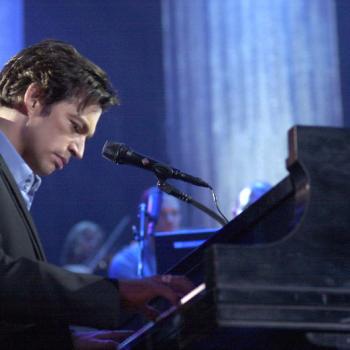I’ve been reading some of the obits about the director Mike Nichols over the last few days, and one of the most remarkable stories of this truly remarkable life is about how he came to America.
Mike Nichols was born in Germany. In 1939, when he was eight years old, his family managed to book passage on a ship to the United States. They sailed on The M.S. Bremen. It was one of the last ships to make it from Europe to the U.S. before World War II. In fact, the next ship to leave from Germany was the M.S. St. Louis, which set sail from Hamburg just two weeks later, with hundreds of desperate Europeans seeking to escape the Nazis. Many were Jewish. Because of immigration laws at the time, the ship was turned away, first from Cuba, then from Florida. It was forced to take the passengers back to Europe.
As a result, it is estimated that a quarter of the more than 900 passengers on board eventually died in the concentration camps.
Mike Nichols escaped that fate, but just barely. Two weeks made the difference between life and death. Asked about it years later, he admitted that it haunted him. “I feel,” he said, “like all of this is borrowed time.” He never took any day for granted.
Well, none of us should. As Catholic Christians, we know that every day is “borrowed time.” And here, at the end of the liturgical calendar, we see that more and more. The readings last week and this week make clear: our days are numbered. There will be a judgment. It’s all borrowed time.
But what are we doing with it?
How are we spending what we’ve borrowed?
The scripture this Sunday tells us what we should do. This great gospel passage, Matthew 25, points the way. It shows us how we should be spending our days and where we can find Christ.
But what a paradox: here, when we celebrate the Solemnity of Christ the King, and honor his power…we are told instead to look to the powerless.
The greatest is found among the smallest.
Look for me there, Christ says. Look for me among the small, the discarded, the ravaged, the naked, the poor.
Whatever you did for the least of these, you did for me.
That is our King. What a mystery. And what a miracle.
This passage tells us something astonishing about the Incarnation and God’s overwhelming love: God not only became one of us, he lives on among the least of us.
And if we are honest, we cannot fail to be humbled by this—and ashamed.
How often we fall short!
Considering this gospel, I think we can all identify those who are poor or hungry or imprisoned. We can write a check or throw a coin into a Salvation Army bucket at Christmastime and feel we’ve done our part.
But there are so many other kinds of poverty, and hunger, and imprisonment.
Some of us hunger for dignity. Some are sick from despair. Some are imprisoned by addiction, or fear, or the past.
We need to look into our hearts and ask: Are we turning away from those we should be turning toward? And if so, are we doing it because they are weak or small or simply, somehow, different?
Are we shutting them out—and shutting out Christ?
And if you want further evidence of those society considers “the least,” you don’t have to look far. The headlines remind us daily.
It’s a Christian refugee in Iraq. It’s a grandmother warehoused and forgotten in a nursing home. It’s an unborn child diagnosed with Down syndrome.
The fact is: in our world today anyone who is different or inconvenient or a “problem” can be marginalized, robbed of dignity, discarded. Anyone can be perceived as less when we think of ourselves as more.
But this gospel, and the promise of Christ’s final judgment, summons us as Christians to think differently.
To act differently.
To love differently.
“Whatever you did to the least of these, you did to me.”
This gospel makes it so clear: We are encountering Christ daily, if only we look for him.
As Mike Nichols knew only too well, we are on borrowed time. The time to acknowledge that, and to change our lives, is now before us.
Next week, we begin Advent and prepare ourselves for another paradox – another sign of the powerful dwelling among the powerless.
The King will come to us in a crèche.
But we don’t have to wait until Christmas. That paradox is among us here and now.
In a few moments we will receive him in a sliver of bread.
The King will come to us in a crumb.
We find him there, someone so great in something so small. This is where we find Christ.
It should bring us to our knees—and bring us to our senses.
With Advent approaching, let us pray to keep our eyes open— and our hearts open, too, that we may recognize our King when he comes to us, however he comes to us.
Because it may not be where we expect.











